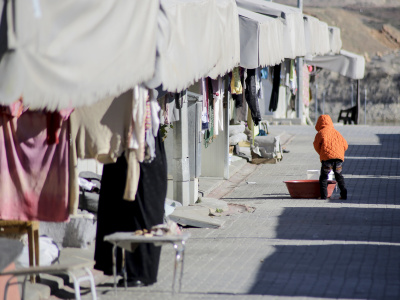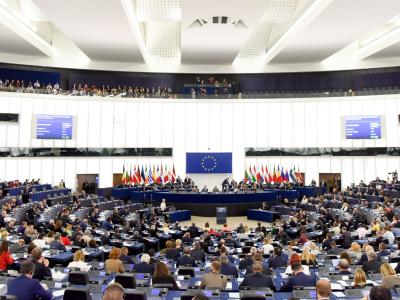
China, Europe and agricultural investments in Africa – the need for dialogue and coordination
China’s and Europe’s intensified investments, trade, and financial and technical support in the African agricultural sector have the potential to substantially impact African agricultural growth and development prospects. Yet, more dialogue is needed if Africa’s partners are to make reality of their promises. Although China has been present in African agriculture for more than four decades[1], it has recently stepped up the volume and scale of its agricultural investments, trade and (technical and financial) support activities to Africa. According to Buckley (2013), since joining the World Trade Organization (WTO) and establishing its ‘Go Out’ policy in the early 2000s “China’s focus has shifted to support for Africa’s economic liberalisation and integration into the global agricultural commodity market.[2] Several examples support this claim, one being the increasing attention paid to agricultural cooperation at the Forum for China-Africa Cooperation (FOCAC).[3] Another is the fact that China signed the l’Aquila Food Security Initiative at the l”Aquila Summit in 2009, which commits to mobilise US$20bn in support of food security, nutrition and agricultural development.[4] A final example is the Memorandum of Understanding signed by The New Partnership for Africa’s Development’s (NEPAD’s) planning agency and the Chinese Ministry of Agriculture on promoting agricultural trade, investments and research activities. NEPAD’s press release states that: ‘Both parties will work together to enhance the participation of Chinese enterprises as well as African enterprises in Africa’s agriculture and rural development. Furthermore, they will work together to regularly arrange high-level exchanges, and have policy, practical and technical dialogues between Africa and China with a view to accelerating Africa’s agricultural and rural development.’[5] Approaches, values and interests China has not however necessarily moved away from the fundamental principles on which it bases its development cooperation. Its approach is still mainly founded on concepts such as mutual benefits, non-conditionality and equal partnerships. According to Buckley, the key drivers behind the Chinese agricultural expansion are to i) enhance political relations; ii) boost commercial opportunities, and; iii) strengthen food and other types of resource supply in order to satisfy domestically changing consumption patterns.[6] Unsurprisingly, these drivers are not unique for China. Europe also needs to strengthen its political and diplomatic relations, now perhaps more than ever since its prior position as a normative global leader has been severely diminished due to slow economic growth, souring debt crisis in some European Union (EU) member states and a decreasing influence at international forums such as the G20. Partly as a response to this, many EU member states have recently turned to the international private sector for further collaborations and partnerships in development projects and programmes. Even though not all development agencies site it as a direct objective or expected outcome, this development approach brings clear opportunities for governments to simultaneously boost their domestic private firms.[7] Finally, Europe needs to secure future supply of food and other resources, which was clearly formulated in the European Commission’s Raw Material Initiatives from 2008 and 2011.[8] Despite the existence of converging drivers, the two agricultural cooperation approaches are both perceived and promoted as essentially different. While Europe tends to emphasise its soft power dimensions and value-driven approach promoting for example human rights, transparency and democracy, China tends to promote its efficiency, speed, flexibility and technical capacity building approach. A competitive factor is underlining this debate, both in terms of trade, investments and resource supply, but also with regard to international political influence and geo-economic power dimensions. Generally, the African perspective tends to be more nuanced and less polarised. Even though both partners bring certain challenges, they can also bring substantial benefits, and more importantly, they can do so in a complementary fashion. Chinese agricultural support is indeed often perceived as faster and more efficient compared to traditional aid, and the discursive focus on equality and partnership is commonly seen as a welcomed turn from the traditional donor-recipient rhetoric and the post-colonial sentiments that still underline much of the European aid structure. However, there are also several African stakeholders who warn that an overreliance on China as a new development partner might lead to new forms of imperialism and exploitation. For example, the then governor of the Central Bank of Nigeria, Mr. Lamido Sanusi, argued in 2013 that China can no longer be seen as the “Fellow under-developed economy” but rather as a massive economy capable of large-scale exploitation and as a competitor to African and world markets. Sanusi does not however recommend a divorce, but rather emphasises the need for Africa to formulate clear directives and approaches towards its partners.[9] The need for further dialogue Despite ever-increasing volumes of research on the different agricultural support modalities and strategies employed by the traditional donors on the one hand and the emerging economies on the other, there remains a lack of mutual understanding as well as open and conducive dialogues. Political representatives from the EU frequently view China’s external activities with a substantial amount of scepticism, while Chinese representatives often see themselves as providing the modern and efficient alternative to the out-dated, patronising and inefficient support strategies of the EU. Regrettably, the viewpoint of African stakeholders from ministries, civil society and farmer organisations, is too often inadequately addressed and emphasised as they are commonly left out of both academic and political discussions. To strengthen mutual understanding between the EU and China in terms of their agricultural development support, as well as to ensure that the African perspective is adequately being taken into account, ECDPM together with African and Chinese partners is setting up and facilitating an informal knowledge and dialogue platform[10] where Chinese, European and African stakeholders share experiences and reflect on the strategies and modalities of their agricultural development support. The platform aims to foster greater mutual understanding and lesson sharing, with the ultimate goal being to promote the development of enhanced partner co-ordination strategies and agricultural support policies firmly aligned with the priorities and demands expressed by the African counterparts. Anna Rosengren is Policy Officer at ECDPM. This article was published in GREAT Insights Volume 3, Issue 4 (April 2014). Footnotes 1. Buckley, L. 2013a, Chinese Agricultural Development Cooperation in Africa: Narratives and Politics, IDS Bulletin. 44(4), United Kingdom. 2. Ibid. p. 43
3. See more at www.focac.org
4. G8. 2009. “L’Aquila” Joint Statement on Global Food Security, L’Aquila Food Security Initiative (AFSI)
5. NEPAD. 12/09-2011. NEPAD Agency signs MoU with China ...agree to strengthen cooperation in agriculture and rural transformation.
6. Buckley, L. 2013b. Narratives of China-Africa Co-operation for Agricultural Development: New Paradigms? Future Agricultures, CBAA Working Paper 053.
7. Byiers, B. and A. Rosengren. 2012. Common or conflicting interests? Reflections on the Private Sector (for) Development Agenda. ECDPM Discussion Paper 131. 8. For a discussion, see Ramdoo, I. 2011. Shopping for raw materials: Should Africa be worried about EU Raw Materials Initiative? Discussion Paper 105, www.ecdpm.org/dp105
9. Sanusi, L. 2013. Africa must get real about Chinese ties, Financial Times, 11 March 2013.
10. See more: www.ecdpm.org/ikp081113
Loading Conversation


